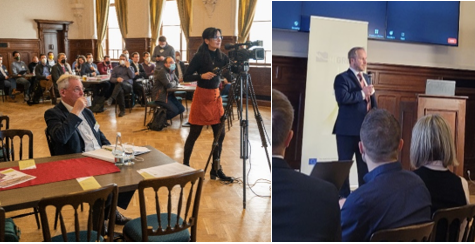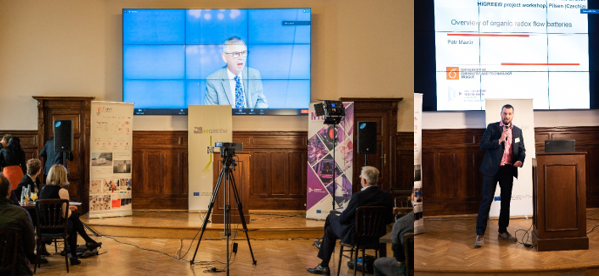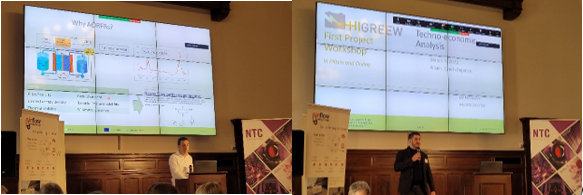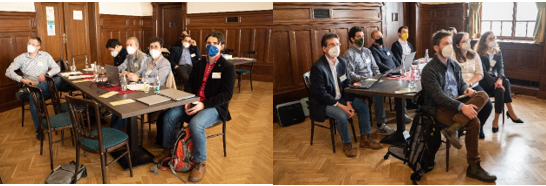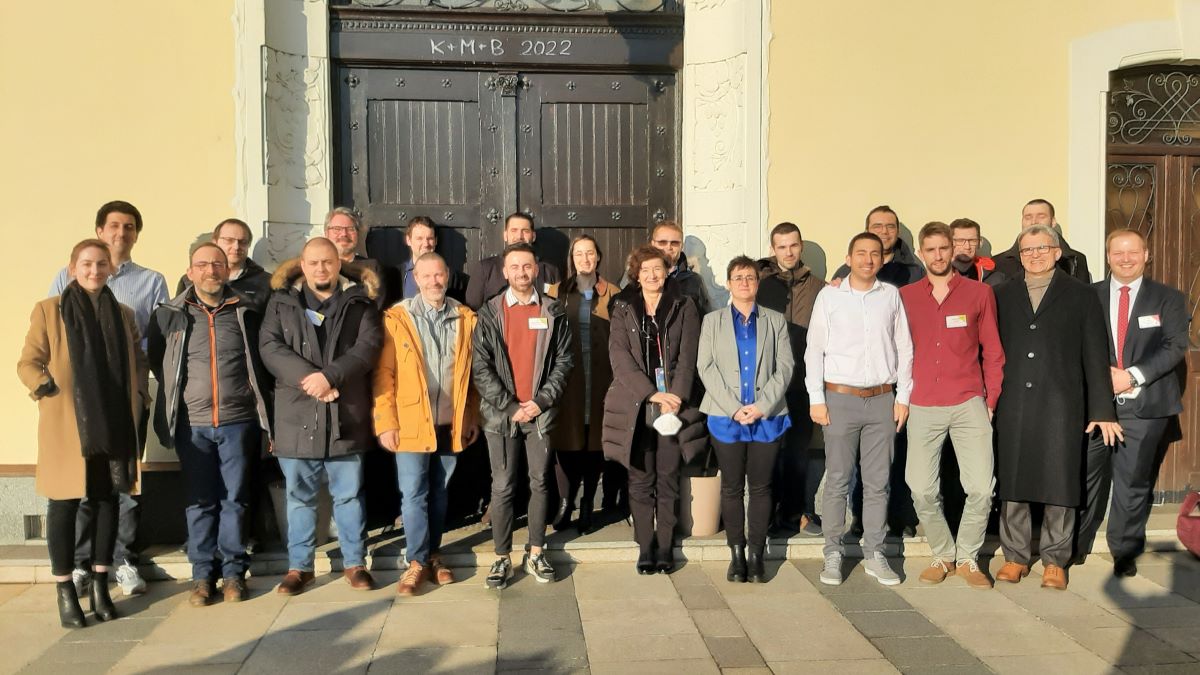HIGREEW Workshop I
The first HIGREEW Workshop – a big success!
The first HIGREEW Workshop has taken place on 2 and 3 March 2022. The hybrid event was organized in Pilsen (Czech Republic) as well as online via ZOOM. Host partner UWB, together with all HIGREEW partners, has worked hard to make the first workshop a success! Over 150 participants from 15 different countries attended the workshop on-site (~ 50) and online (over 100).
It successfully brought together high-level representatives from industry, researchers and EU policymakers to exchange views on key issues for the storage sector and the crucial role of redox-flow batteries (RFB) in the energy transition. On the second day, the HIGREEW partners had the opportunity to present and discuss the current HIGREEW innovations/preliminary results and developments. We want to thank everyone who contributed and/or participated in this first HIGREEW Workshop!
Filming the first HIGREEW Workshop and welcome speech by PETR KAVALÍŘ – Director of New Technologies – Research Centre
To view the full programme and presentations of all the invited speakers, see below:
Day 1 (2 March)
- The Supplier´s new role in energy transition by VLADIMÍR KARAS
- Batteries: Supporting Fast Charging and Vehicle to Home by KARL-HEINZ PETTINGER
- Policy background and prospects for energy storage by ALEKSANDRA KRONBERGA
- R&I Support for stationary energy storage with the Batteries Partnership Batt4EU by JOHAN BLONDELLE
- Redox-Flow-Batteries – from research to application by PETER FISCHER
- Opportunities and challenges for energy storage using flow batteries by ANTHONY PRICE
- Invinity Energy Systems, company introduction and case studies by ADAM WHITEHEAD
- Case studies of CellCube batteries by PAVEL MARDILOVICH
- Overview of organic redox flow batteries by PETR MAZÚR
- HIGREEW: achievements and hurdles in the deployment of AORFB by EDUARDO SÁNCHEZ DÍEZ
- BALIHT project – upgrading components for novel oRFB working under heavy multicycling and warm environments by VINCENTE VERT BELENGUER
- Recent Progress in Organic Aqueous Flow Batteries by MICHAEL J. AZIZ
- Great opportunities for utility scale storage down under by THOMAS NANN
- Computational screening of organic molecules for flow battery applications by PEKKA PELJO
Selected photos of presentations during the first day of the workshop – ANTHONY PRICE, Secretary-General, Flow Batteries Europe (on the left) and PETR MAZÚR, Principal Researcher of Laboratory of Energy Storage, NTC UWB and UCT Prague (on the right)
Day 2 (3 March)
- Welcome to the second day of the Workshop by JURAJ KOSEK (UWB)
- ‘AORFB, from chemistry selection to electrolyte development’ by EDUARDO SÁNCHEZ DÍEZ (CIC energiGUNE)
- ‘Membrane developments for RFB: Towards modified membranes’ by IVAN SALMERON (UAM)
- ‘Activated vs non-activated: quantitative assessment of reactivity for optimizing RFB electrodes’ by MATHIEU ETIENNE (CNRS)
- ‘Optimization of cell efficiency for aqueous organic electrolyte’ by VÁCLAV ČMOLÍK (NTC UWB)
- ‘How to design & validate efficient Aqueous Organic Redox Flow Battery cells’ by JIŘÍ CHARVÁT (PFES)
- ‘RFB scale up experience from cell to stack’ by JOHN COLLINS (CTECH)
- ‘Building a new battery system (like a jigsaw!)’ by MICHAEL SCHÄFFER (FRAUNHOFER)
- ‘Techno-economic analysis’ by EID MARAQAH (GAMESA)
- ‘La Plana Hybrid Facility’ by ANTONIO RIESCO (SIEMENS GAMESA)
Selected photos of presentations on day 2 of the workshop from HIGREEW partners – EDUARDO SÁNCHEZ DÍEZ, Associate Researcher in CIC energiGUNE and coordinator of HIGREEW (on the left) and EID MARAQAH, Engineering Consultant – Energy Storage Solutions at Gamesa Electric (on the right)
The workshop has been recorded and made openly available. Please find the video below:
Day 1:
Day 2:
All in all, the participation was a great success and we are already looking forward to the next project workshop!
Selected photos of workshop attendees (on the top) and HIGREEW partners attending the workshop, with two visitors from KTH (below)
This project has received funding from the European Union’s Horizon 2020 research and innovation programme under Grant Agreement no. 875613.![]()
